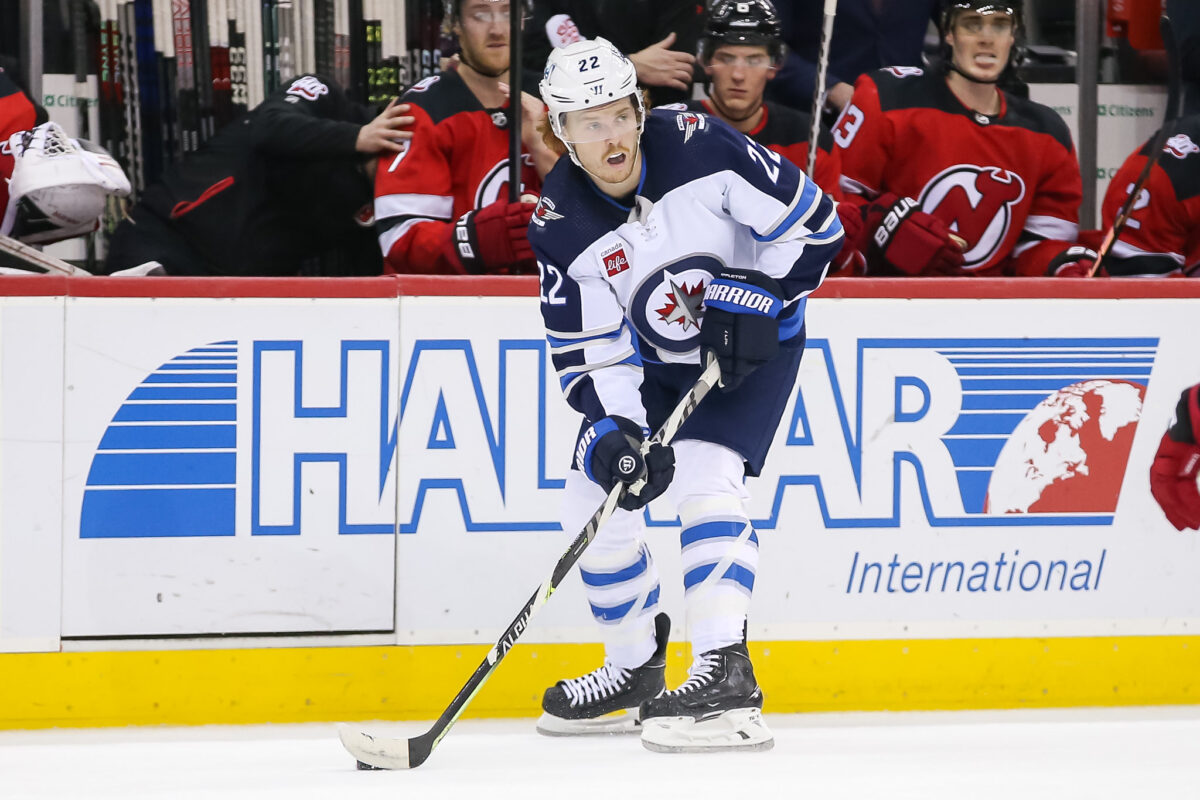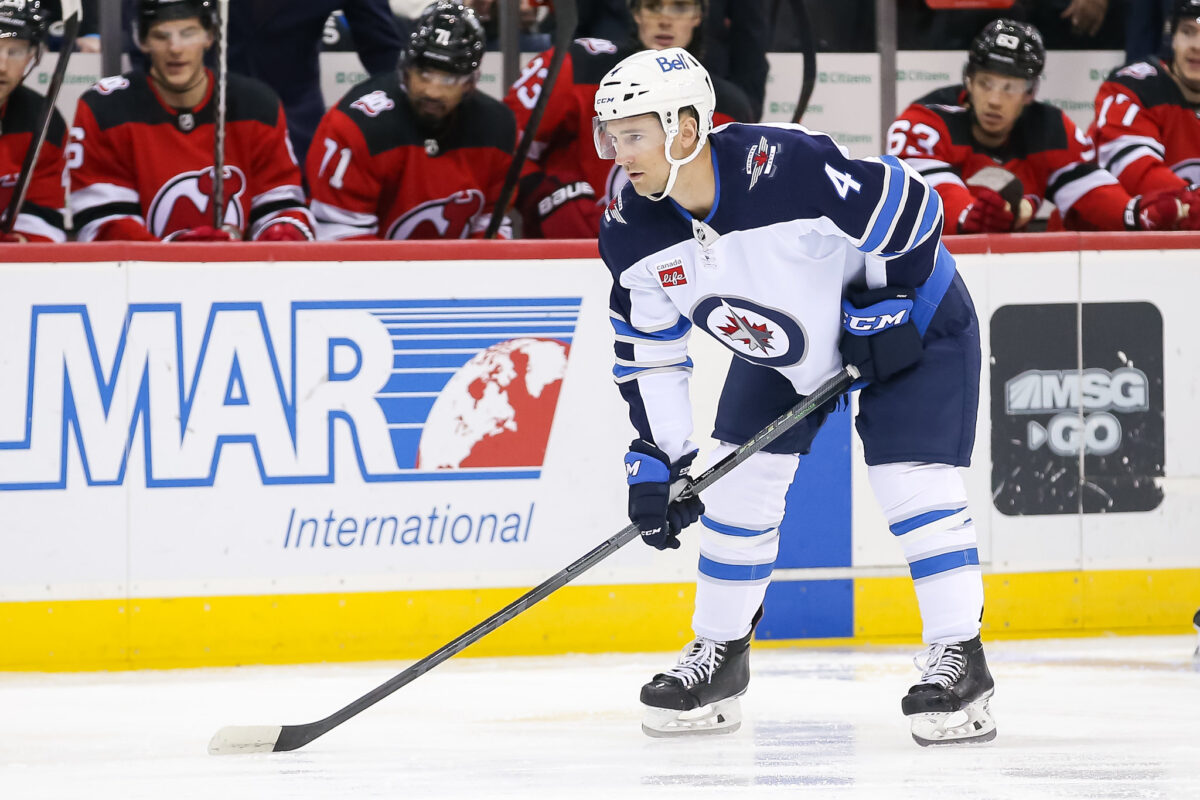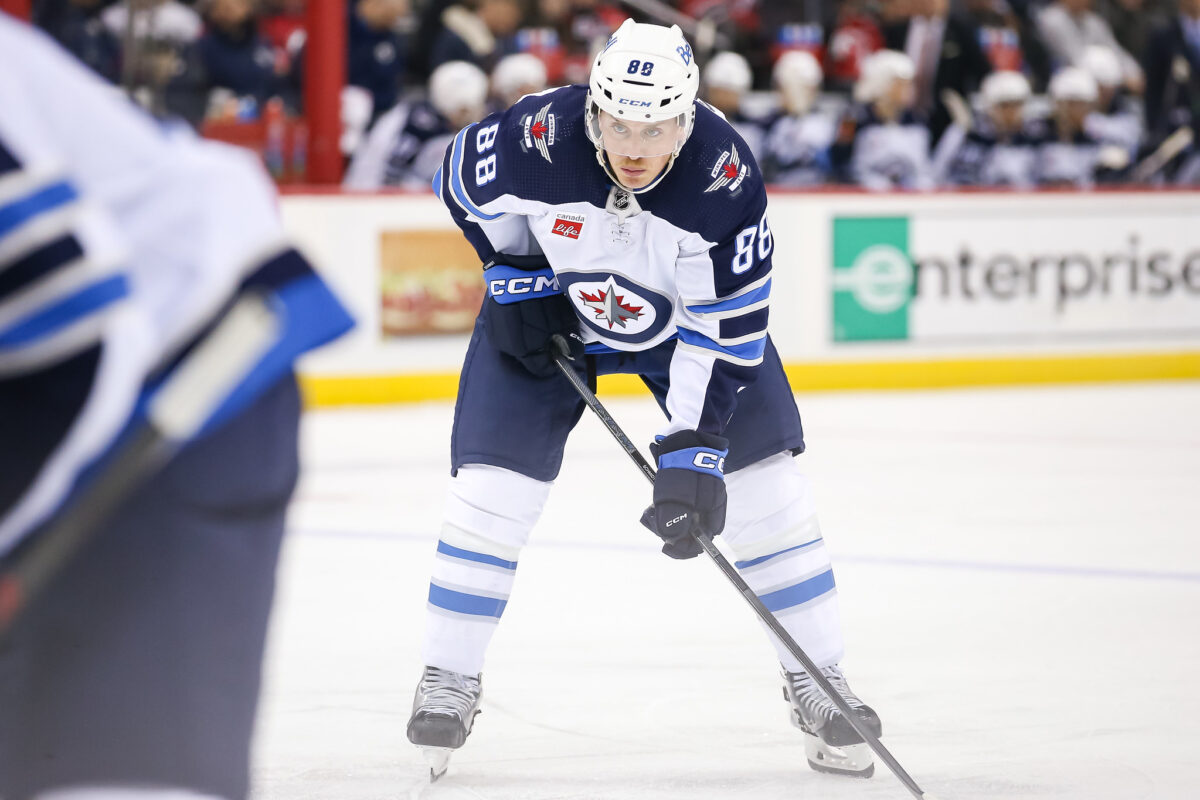Winnipeg Jets’ general manager Kevin Cheveldayoff has inked many players to team-friendly contracts throughout the years. This includes much of the current core — Kyle Connor, Nikolaj Ehlers, and Josh Morrissey — in addition to a few players likely on their way out in Mark Scheifele and Connor Hellebuyck.
Related: Winnipeg Jets 3 Best Contracts for 2023-24
While Cheveldayoff has not tendered many disastrous contracts in his tenure — certainly nothing to the level of 37-million-to-Dave-Clarkson or 15-years-to-Rick-DiPietro — he’s not been perfect. He got rid of his biggest boat anchor by buying out Blake Wheeler’s bloated $8.25 million cap hit in late June, but still has some less-than-ideal contracts on the books for the upcoming campaign, where the Jets will try to simultaneously conduct a retool and remain competitive.
Here, we’ll dive into their three worst contracts going into the 2023-24 season.
3: Mason Appleton: $2.166 Million AAV, Two Years Remaining
Mason Appleton was a high-scoring forward for the Manitoba Moose early in his career, but what he actually brings to the Jets nowadays is a bit hazy.
Appleton put up 98 points in a season-and-a-half with the Moose after being drafted in the sixth round of 2015, and there were hopes he was a diamond in the rough who would blossom into a top-six producer. Unfortunately, that didn’t happen and he turned out as a bottom-six guy who provides spurts of secondary offence.

The now 27-year-old has 80 points in 247-career NHL games and his best season was 2020-21, when he put up 25 points in a career-high 56 games for the Jets and played a slightly expanded role. He was claimed by the Seattle Kraken in the 2021 Expansion Draft, but reacquired by the Jets less than a year later in a trade as the then-last-place Kraken sold.
It was a smart-enough move, considering Cheveldayoff gave up just a 2023 fourth-rounder. What wasn’t smart was giving Appleton a three-year extension with a $2.16 Million AAV after he put up just four point in 19 games down the stretch after the reacquisition.
The return for investment in the first year of that contract was not great as Appleton had 16 points in 41 games and missed half the season due to a wrist injury sustained in mid-November that required surgery.
2: Neal Pionk: $5.875 Million AAV, Two Years Remaining
Pionk has been a reliable point producer and sometimes a game-changer in his four seasons with the Jets. However, his actual defensive play in a top-four role has declined.

His play without the puck over the past two seasons has been oft-questionable and has certainly not lived up to the high standard he set in his first two seasons in Winnipeg, play which had many thinking the Jets won the 2019 trade that brought Pionk from the New York Rangers in exchange for Jacob Trouba.
Pionk is a “high-event” player, meaning he generates a lot in the offensive zone but gives up a lot in the defensive zone. He created 847 scoring chances last season — fifth on the Jets — and recorded 33 points, but allowed 910 scoring chances, most on the Jets. Since 2020-21, his CORSI and Fenwick percentages at all strengths have taken a dive to below 50 per cent from the mid-to-low 50s.
Although Pionk can be relied upon to play 20-plus minutes per game and compete hard, the drop-off in his performance has made the four-year contract extension he signed in 2021 an overpay. The Jets may be better off in the long run by trading him.
Pionk and another player we’ll explore below are the primary two responsible for a defensive logjam that is preventing younger defenders — primarily Declan Chisholm and Ville Heinola — from getting the NHL time they need to further their development. This logjam also led to the loss of Jonathan Kovacevic on waivers at the beginning of last season and promising Moose defender Leon Gawanke this summer.
Chisholm and Heinola would be much cheaper than Pionk and as their tremendous 2022-23 seasons with the Moose illustrate, have excellent potential upside. Chisholm had five goals and 43 points in 59 games, four assists in five playoff games, and was named an AHL All-Star, while Heinola had four goals and 37 points in 48 games and posted a plus-20 rating.
1: Nate Schmidt: $5.95 Million AAV, Two Years Remaining
Nate Schmidt makes just $300,000 less than Josh Morrissey.
Morrissey is an elite defender coming off an All-Star season in which he put up 16 goals and 60 assists for 76 points and dominated on both sides of the puck. Schmidt is a player who bounces between the second and third pairings.
That’s not to say the 31-year-old isn’t useful: he played a variety of roles with a variety of partners last season while posting 19 points, playing more than 18 minutes per game, and improving his defensive metrics. He also has a larger-than-life personality and good nature that leads to him being a positive influence in the dressing room. It’s just to say his cap hit is too high for what he brings to the ice.

The Schmidt contract is a good example of the less-than-ideal ones small-market GMs — who sometimes have trouble attracting top UFA talent — have to take on to acquire experienced NHLers. Cheveldayoff did just when trying to improve his beleaguered blue line in summer 2021, striking a deal with the Vancouver Canucks for Schmidt and in the process, inheriting the four years left on his contract that carries a $5.95 million AAV.
Related: Jets 2022-23 Report Cards: Nate Schmidt
The move, at the time, made sense as it gave the Jets a proven veteran defenseman with term. But two seasons later, his presence is contributing to the logjam we explored above.
